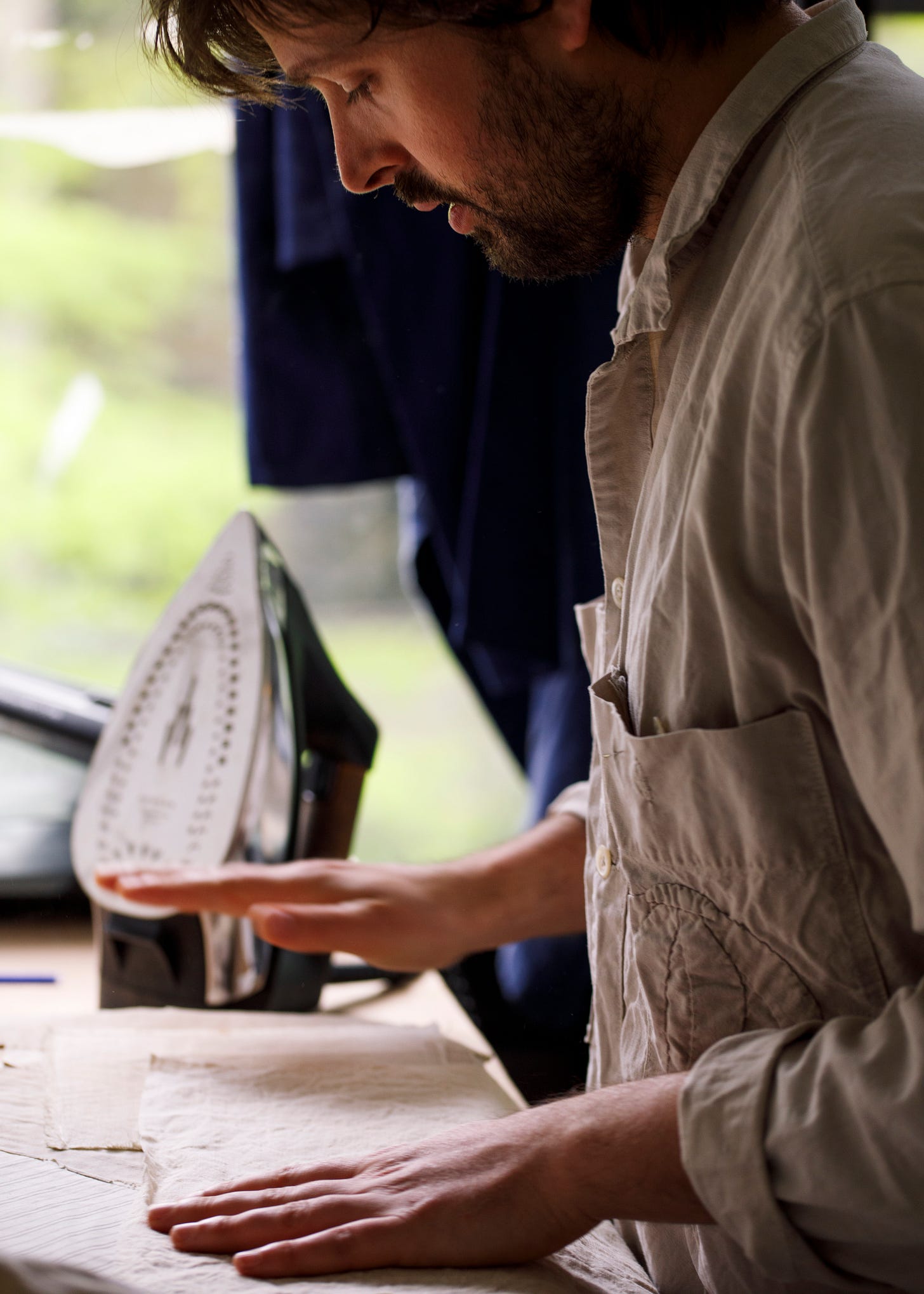How to make a living off creating 200 pieces a year
Oliver Church's handmade garments are stocked in a handful of luxury boutiques around the world. We spoke to him about defying industry norms to accomplish this.
By Eilidh Duffy
Oliver Church might not be a name you've heard. However, pay a visit to the most well-respected independent fashion retailers across Japan, Europe and North America, and there’s a high chance you’ll find a few of his pieces. His signature: loose jackets and shirts constructed and sewn entirely by hand from vintage and antique French fabric. And, despite the gloomy current economic outlook, Church’s brand may well outlast some of your favourite indie fashion week stalwarts. Why? Because his business model is not at all conventional.
All of Church's pieces are produced in his one-man atelier in a block just outside the Châtillon–Montrouge Métro station in Paris, and, where most brands are looking to scale their businesses, Church is actively trying to limit it. After a decade of working in fashion, he was looking to develop a business model that didn’t require him to overproduce, where he could build a real relationship with the garments he was creating. Working with a highly limited number of stockists and producing only 200 or so pieces per year, he keeps his work in high demand, reducing wastage while he’s at it.
Although his method of hand-making each garment isn’t unique to Church, he knows his customers and how to reach them, while remaining realistic about the parameters of his brand’s growth. Having been “at capacity” for orders since 2022, just two years after launching his namesake label, he has no intentions of expanding that list, aside from a potential line of knitwear produced by a small family-owned factory outside of the Italian city of Lucca.




